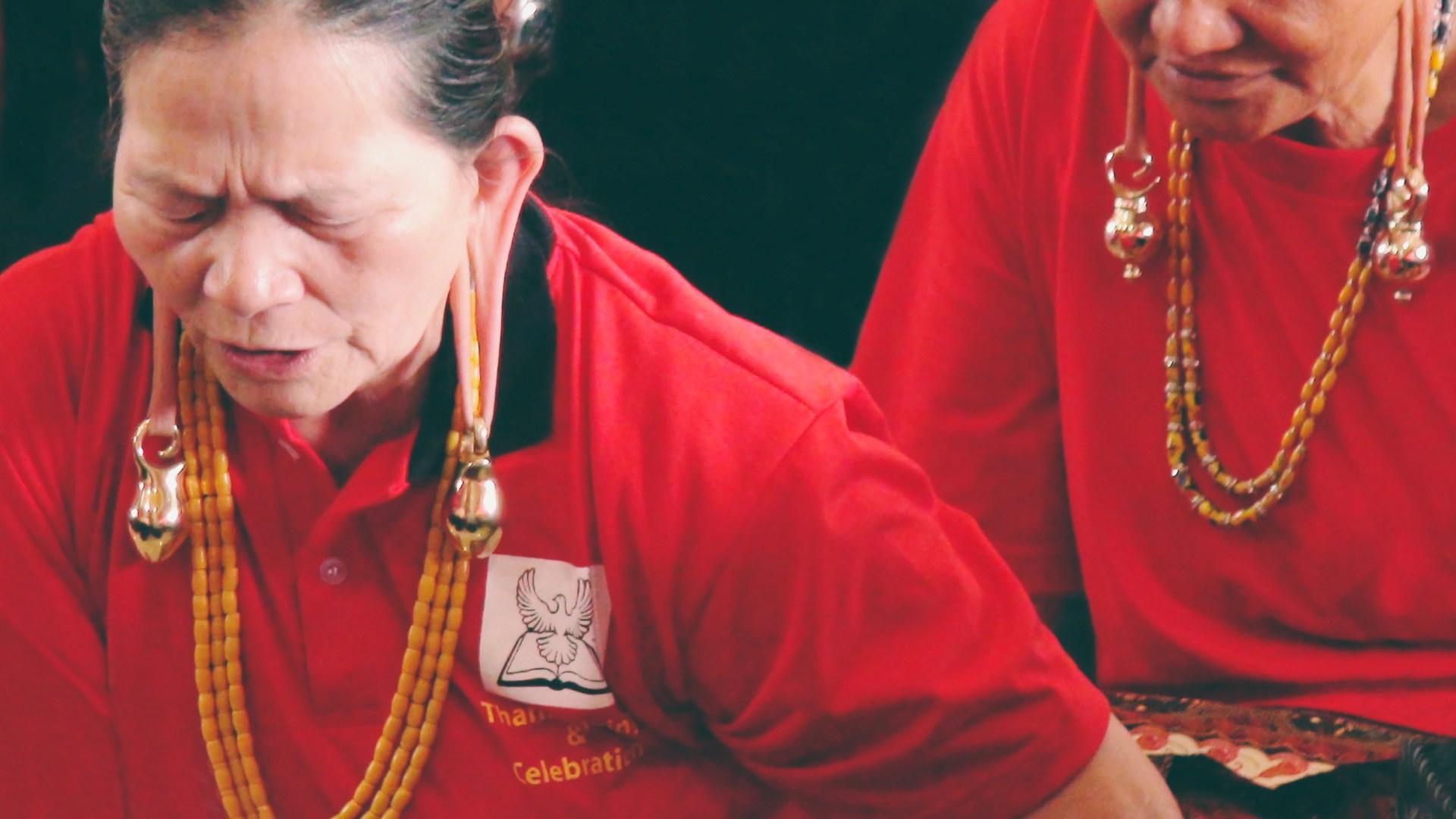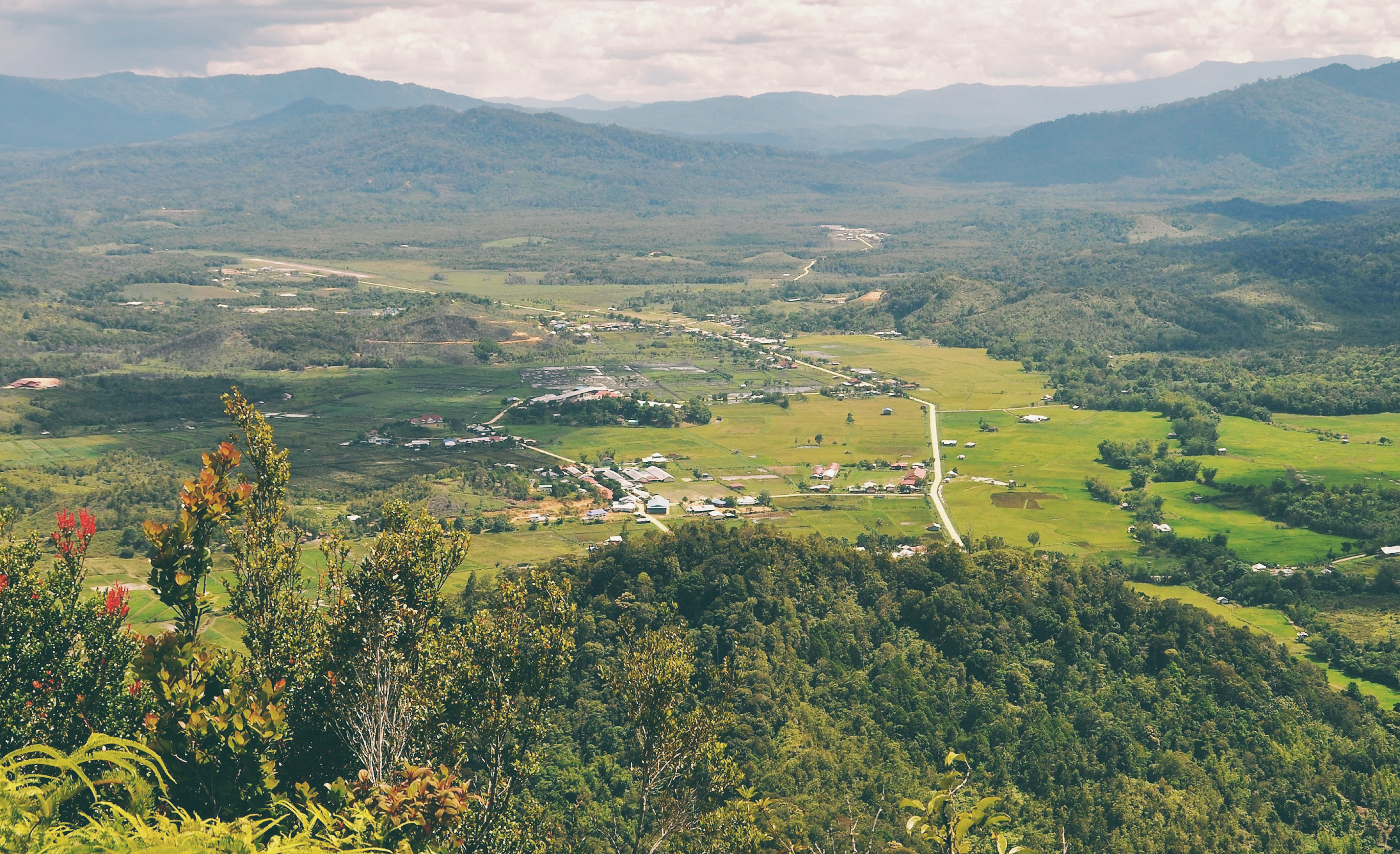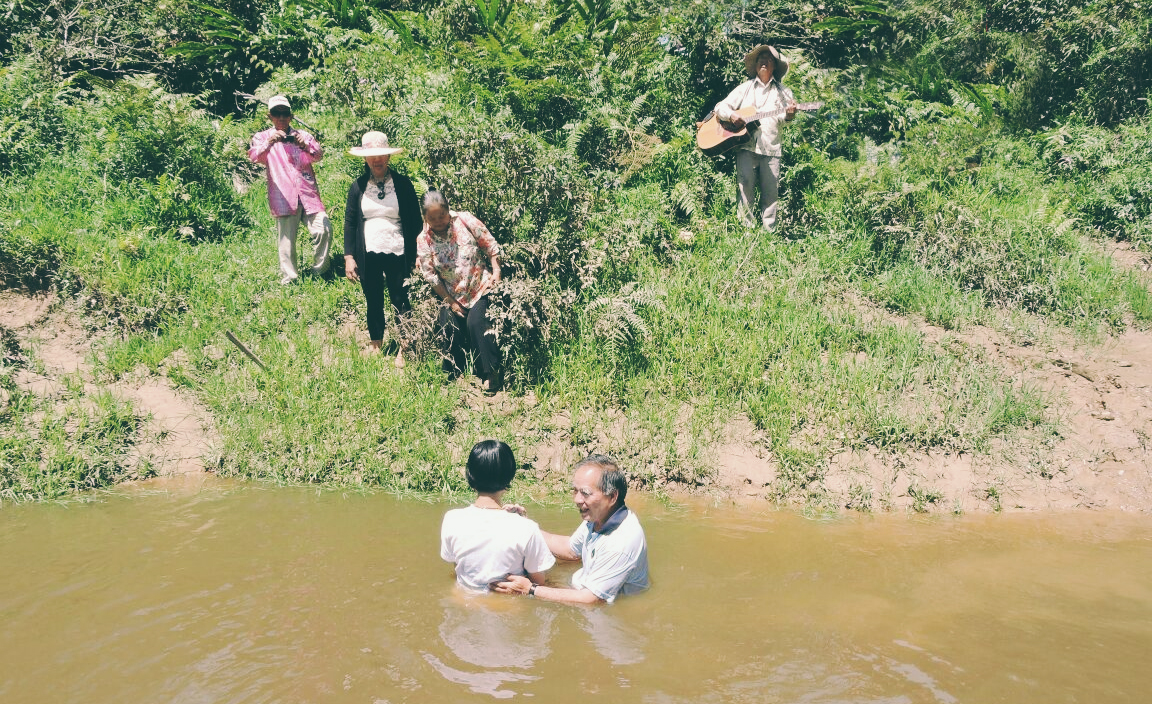One October afternoon in 1973, my brother stood in front of a dozen secondary students in Bario, a remote village in Sarawak, Malaysia. In tears, 23-year-old Solomon Bulan announced his resignation as the advisor of the school’s Inter-Christian Students’ Fellowship, confessing that he felt unworthy to lead the group. He saw himself as a hypocrite, lacking personal conviction and a relationship with God. He felt disgusted and ashamed of his lifestyle of drinking and partying, and he struggled to model what he was preaching to the students.
At the close of the meeting, a normally timid student suddenly began to cry as he also asked for forgiveness from his friends for his wrongdoings and confessed and repented of his sins. Another student piped up, then more and more, until the whole room was filled with cries of repentance.
“Their cries were agonizing, pleading with God for mercy while others went around hugging their friends as they confessed their sins to each other, seeking forgiveness, all amidst unrestrained tears,” Bulan later wrote in a book we published together in 2004. “The massive outpouring went on for at least 45 minutes.”
The following week, the revival reached Bario Primary School, where I was a third-grade student. I remember older students pleading with their classmates, “Please forgive me. Jesus is coming soon! Let’s forgive one another and repent.”
From such humble beginnings came the 1973 Bario Revival, which spread through the various villages of our indigenous Kelabit tribe and into neighboring tribes and communities. Repentance, reconciliation, and restoration radically transformed the community’s perspective of God and church, resulting in an immediate cultural shift.
It also set off four waves of revivals in the next 11 years. More than 50 years later, the fruits of the revival are still evident in Bario and other tribal communities. It has also contributed significantly to the growth of the Malaysian church—the Borneo Evangelical Mission, locally known as Sidang Injil Borneo (SIB), is one of the largest evangelical denominations in the country today.
“These events could only be supernatural and the works of our God,” wrote Osart Jallong, one of the 12 students at the meeting, on the 40th anniversary of the revival. “We were mere kampong (village) boys who knew very little about God’s works. I was timid and would not, in my natural self, carry myself to speak to a large crowd of people. But at that time, we feared nobody and would speak and pray for anyone. Only God could give us such courage and words to speak!”
A changed Bario
Bario is located in the remotest part of the Kelabit highlands in northern Sarawak on the island of Borneo, which is shared by three countries: Malaysia, Indonesia, and Brunei. Bario is home to the close-knit Kelabit people. Australian missionary Charles Hudson Southwell, founder of the Borneo Evangelical Mission, reported the first known conversion among this small tribe (then 5,000 people) in January 1940. In 1943, Aris Doemat of the China Missionary Alliance (CMA) in Surabaya, Indonesia, visited the highland villages, and the Kelabit in Bario converted en masse. Missionaries also built the first schools in the village. The introduction of formal education enhanced the Kelabit’s experience of liberation from oppressive rituals and control of evil spirits.
Over time, as a new generation grew up, nominalism set in. Growing up, I learned to pray before eating, bathing, sleeping, and going to school. But when the revival came, the sense of the fear of God and his holiness became pervasive. I remember daily confessing my sins to God. I desired to be in his presence and sought miraculous signs of his presence all the time. My friends and I attended adult prayer meetings and services whenever we could and we even held our own prayer meetings. We often prayed to have visions of God. One night, I encountered God, who assured me that he would always be present to protect me like a mother hen.
 Courtesy of Lillian Bulan-Dorai / Edits by CT
Courtesy of Lillian Bulan-Dorai / Edits by CTAround me, villagers were overtaken by a deep consciousness of God’s holiness. They stopped drinking and smoking. They got baptized and repented of sins such as pride, lying, adultery, witchcraft, and sorcery. Some returned what they had stolen and gave to the church generously. One man confessed to murder. Yet because of the prevailing conviction to forgive every sin, offenders didn’t face criminal proceedings. The spirit of reconciliation among the villagers was so strong that all pending cases at the court were resolved, and for a number of years, the courts had no work to do.
Despite investing their time in preaching around the villages, the secondary students still managed to do well in their qualifying exams conducted at the end of October that year, earning the school’s best results to date.
Even the land healed. The people’s preoccupation with prayer meetings, services, and outreaches meant less time spent in their paddy fields. Yet throughout those few years, the fields yielded an extraordinary harvest.
Worship and prayer shaped the villagers’ new response to life. Church services became more vibrant and frequent. Worship was spontaneous, while young people preached boldly and evangelized the adults. In the village chapels, people gathered for daily morning devotion at 5 a.m. and attended services on Wednesday and Saturday nights, while also dedicating their Sundays to three adult services and Sunday school for children. These routines remain today in most churches.
Doubts and a revival’s spread
The village’s influential church leaders initially doubted the authenticity of the revival, with some claiming it was simply heightened emotionalism. But Joseph Balan Seling, a respected political leader and seminary-trained church elder, believed otherwise. He promptly returned from a conference in London to Bario upon hearing about the movement.
Balan eagerly wrote to his missionary friends in England and Australia with his observations of the revival: “The Holy Spirit has come down upon the Kelabit churches in the Bario highlands in a mighty force, somewhat similar to the story recorded in the Book of Acts, the Congo, and the Indonesian revivals.”
Because the church leaders in Bario deeply respected Balan, they listened as he explained that Bario was witnessing a great visitation of God, just as the apostles had experienced at Pentecost in Acts 2. Balan shared that what was happening in Bario had happened elsewhere in the world, and the leaders finally accepted that this was a revival.
The people felt the revival needed to be shared. Young people walked for days through the dense jungle and hilly terrain to share the glorious message of repentance and forgiveness to their neighbors. Everywhere they went, people turned to God, repented, confessed their sins, received healings, and were baptized.
In just two months, two other indigenous villages—Ba’kelalan and Taginambur in Sabah—also experienced revival. While these remain the most well-known revivals of Malaysian Borneo, other indigenous communities and churches in the lowlands and towns also experienced their own waves of revival.
Revival’s waves
Revivals ebb and flow. “Like a wave, revival will crest at some point,” wrote Tom Phillips, author and vice president of the Billy Graham Evangelistic Association. “The culmination will be relatively short before the wave follows its natural course and recedes. It’s impossible to live ‘at the peak’ or ‘on the crest’ forever. A revival will move us to new heights and revitalize us.”
We experienced that in Bario too. After about a year and a half, Bario experienced a season of spiritual dryness. Church attendance dwindled as the meetings became routine. People seemed tired and complacent. Bario lacked the needed spiritual leadership.
Looking back, I now see that this was due to the transient nature of Bario church leadership and members. Congregations depended on a handful of government servants, teachers, and church pastors to run weekly services and disciple congregants. Young people often had to leave the village to further their studies in towns and cities. Others left because the village lacked economic opportunities to sustain growing families. The void created by these absences caused Bario to lose the fervor that had started the revival.
Nevertheless, a handful of faithful intercessors arose from the Bario Revival. They consistently prayed together, and God graciously sent three more outpourings in 1975, 1979, and 1984. Each wave came with a different thrust, but all carried the certainty of the Holy Spirit’s power to convict and transform lives and drove the villagers to evangelism.
The second wave was ignited by visits from an Indonesian charismatic preacher, Yohanes Sakai, in 1975, refreshing the community after a period of stagnancy. This wave was marked by the baptism of the Holy Spirit, with people breaking out in tongues, experiencing healing and deliverance, seeing visions, and receiving words of prophecy with immediate interpretations.
New and prophetic songs emerged—sometimes spontaneously—inspired by the Holy Spirit. People experienced deliverance and healing simply through claiming God’s power with the lyrics of songs like “BilurNya, BilurNya Sungguh Heran” (His Stripes Are Miraculous) and “In the Name of Jesus.” For instance, one young woman with a serious eye impairment was healed, and she never wore her thick spectacles again.
I remember the exuberance in the worship and prayer after each testimony of healing. Without fail, the great hymn “How Great Thou Art,” sung in our native language, would bring us down to our knees in thanksgiving, worship, and adoration. Mission teams went out from Bario to the villages and tribes scattered near and far. They returned with reports of miracles: healing of diseases as well as deliverance from the occult and demon possession.
The third revival wave in 1979 came as global influences, technological advancements, and socioeconomic changes brought materialism and self-obsession into our village. The church was deeply concerned about young professionals who had backslid or left the faith and about several prominent church leaders who had fallen into adulterous relationships. Once again, the same faithful intercessors began to mobilize. They received a specific word and vision to retreat to the mountains and devote themselves to pray for the people. As they did, more intercessors joined them, and the intensity of prayer grew.
Prayer meetings often lasted into the cold nights and spilled over into the villages as the intercessors shared testimonies of healings and miracles. Prayer troupes initially climbed the mountains surrounding Bario. Eventually, they had a vision to pray on Mount Murud, the highest mountain in Sarawak. On their first visit, Christians from neighboring Ba’ Kelalan joined them. The Lun Bawang people continued prayers on Mount Murud and built Gedung Halleluyah (Mount Murud Prayer House), which remains to this day.
 Courtesy of Lillian Bulan-Dorai / Edits by CT
Courtesy of Lillian Bulan-Dorai / Edits by CTThe fourth wave came in 1984 as people blessed by the earlier waves or who had heard of the Bario Revival in other parts of Malaysia came to Bario either to experience God or to minister to the now complacent villagers. Teams from the Pentecostal and charismatic movement that was sweeping through churches in Peninsular Malaysia came to Bario with charismatic teachings on spiritual gifts, and people were renewed in their experiences of power through baptism in the Holy Spirit, with evidence of speaking in tongues. The gift of tongues then was not just a form of prayer but prophetic words with interpretations.
A new generation
In 1998, church leaders and intercessors in Bario organized the first commemoration of the Bario Revival, calling it Kebaktian Kebangunan Roh (KKR, “Revival Meeting”) so that people might not forget God’s work through the revival. Since then, meetings have been organized annually in Bario and in the growing SIB churches in the city of Miri in Sarawak. The focus is always to call people back to God in the hope that God would bring revival again.
These KKR meetings brought to light the lack of spiritual interest among the younger generation of Borneo’s indigenous people. Many had not yet seen or experienced the mighty work of God among their ancestors and were falling away, even adopting other faiths. So church leaders created a fellowship group for the younger generation called Persatuan Kelabit Saban and Berawan (PKSB), which focused on three small, closely related ethnic groups: the Kelabit, the Saban, and the Berawan.
In 2018, the older leaders of PKSB handed over the leadership to a handful of keen young leaders. With direction from the Holy Spirit, the movement has transitioned from a focus on the Bario Revival to include all 60 indigenous people groups in Malaysia, in keeping with the vision of Revelation 12:9. It changed its name to Tribal Gathering—an intertribal, intergenerational, interdenominational, international prayer movement.
Last year, which marked the 50th anniversary of the Bario Revival, intercessors from across the country focused prayer on the next move of the Holy Spirit in Malaysia. Pastors Sabrina Low and Rachel Bulan (my niece) of Cornerstone Community Church in Miri believed that revival in Borneo was imminent. Leading the monthly Tribal Gathering prayer meetings, they collaborated with pastor Lee Choo of Sidang Injil Borneo Kuala Lumpur (SIBKL), who had started a 24-hour nationwide prayer movement called Malaysia United Fire Wall.
These prayer movements culminated in Tribal Gathering 2023, held in Miri last October and organized to coincide with the 50th anniversary of the Bario Revival. More than 4,000 believers congregated in the city’s indoor stadium. Young leaders from more than 100 churches led the gathering and called on God to awaken the nation. There was a high expectation that revival might break out during the three-day gathering. While that did not happen, it awakened the Malaysian church to an even greater need to pray to change the spiritual trajectory of Malaysia and Southeast Asia. Never before had the Malaysian church seen such unity and deep longing among the young generation for revival.
While the Tribal Gathering 2023 movement is strongly supported and reinforced by prominent church elders from Malaysia, Singapore, and Indonesia, its heart is the young leaders seeking to tu’ee’—or “wake up”—arise, and pick up the baton for the transformation and salvation of our land.
A song sung at the gathering, composed by Rachel Bulan and her cousin Joshua Maran, provided a thunderous, powerful call for the church: “Every tongue and tribe will know Your name / Every knee will bow and sing Your praise / Tu’ee sons and daughters. Come awake, army of God. Wake up!”
Lillian Bulan-Dorai is a registered licensed counselor and a pastor at Full Gospel Assembly in Kuala Lumpur. She heads Family Life, the church’s family and counseling ministry. Lillian is the author of Rushing Wind (2023) and The Bario Revival (2004), both of which she wrote with her brother, Solomon Bulan.














